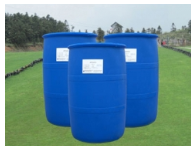Polymer surfactant not only has excellent emulsifying stability, but also can give the emulsion special properties, which is incomparable with ordinary surfactants. Polymer surfactant has a strong emulsifying ability. When a certain amount of graft copolymer is dissolved in oil (water), the oil-water system will be emulsified and the emulsion will be stable after sufficient oscillation.

In order to obtain the necessary hydrophilicity, hydrophilic group should be introduced, but there is no quantitative relationship between water solubility and hydrophilic group content and polarity. Due to different polymers and different molecular structures, water solubility will also change greatly. When the hydrophobic group interaction is strengthened, the water-soluble polymer surfactant will also form a colloidal solution, that is, in the form of molecular aggregates in the solution.
In most cases, water-soluble polymer surfactants form colloidal solution, which is a thermodynamic stable system. Particles of various shapes are suspended in the colloidal solution in the form of molecular clusters.
Although many common surfactants have dispersing effect, due to the influence of molecular structure, relative molecular weight and other factors, their dispersing effect is often very limited and their dosage is large. Due to the adjustable position of hydrophilic group and hydrophobic group, the molecular structure of polymer surfactant can be comb like and multi branched chain, so the effect of polymer surfactant on dispersing particles, surface covering and encapsulation is much stronger than the former. As the dispersion system tends to be more stable, it has become a kind of dispersant with a bright future.
Thickening has two meanings: one is to use the high viscosity of its aqueous solution to improve the viscosity of other water-based systems; the other is that water-soluble polymers can interact with other substances in water, such as small molecular fillers and polymer additives, to form chemical or physical combination, resulting in the increase of viscosity. The latter effect tends to have a stronger thickening effect. Generally, the polymer used as thickener should have higher relative molecular weight, such as polyoxyethylene as thickener, the relative molecular weight should be about 2.5 million. The common thickeners are gelatin, carboxymethyl cellulose, stearic acid polyethylene glycol ester, fatty amine polyoxyethylene, etc.